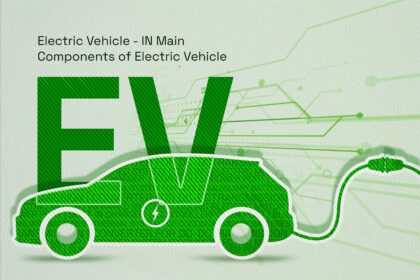In recent years, the automotive industry has seen a remarkable shift towards more sustainable practices, and at the forefront of this change are eco-friendly electric cars. These vehicles represent a significant leap forward in our quest to reduce carbon emissions and combat climate change. Unlike traditional gasoline-powered vehicles, eco-friendly electric cars use electric motors powered by batteries, which significantly cut down on harmful exhaust emissions. This shift not only helps in reducing air pollution but also contributes to the overall reduction of greenhouse gases, making a positive impact on the environment.

The rise of eco-friendly electric cars is driven by a growing awareness of environmental issues and advancements in technology. As more people become conscious of their carbon footprint, they are increasingly looking for greener alternatives to their everyday transportation needs. Eco-friendly electric cars offer an excellent solution by providing a cleaner, more sustainable mode of transportation. These cars are designed to minimize environmental impact without compromising on performance or comfort, making them an attractive choice for environmentally conscious consumers.
One of the key advantages of eco-friendly electric cars is their efficiency. Electric engines are inherently more efficient than internal combustion engines, as they convert a higher percentage of energy from the battery into motion. This efficiency translates to lower energy consumption and fewer emissions. Additionally, many eco-friendly electric cars are equipped with regenerative braking systems that help recharge the battery during braking, further enhancing their efficiency and extending their range.
Another significant benefit of eco-friendly electric cars is their low operating costs. Electric vehicles (EVs) generally have fewer moving parts compared to gasoline cars, which means lower maintenance and repair costs. The absence of a complex engine and exhaust system reduces the likelihood of mechanical issues, resulting in less frequent and less costly repairs. Moreover, the cost of electricity for charging is typically lower than the cost of gasoline, leading to further savings for EV owners. Many governments also offer incentives and rebates for purchasing eco-friendly electric cars, making them an even more attractive financial option.
Despite these advantages, there are still challenges that need to be addressed to fully realize the potential of eco-friendly electric cars. One of the main hurdles is the current infrastructure for charging. While advancements are being made, the availability and convenience of charging stations can still be limited in some areas. This issue is gradually being resolved with the expansion of charging networks and the development of faster charging technologies, but it remains an area of ongoing improvement. Additionally, the production of electric car batteries involves the mining of rare minerals, which can have environmental impacts. However, research and development are focused on making battery production more sustainable and improving recycling processes.
The future of eco-friendly electric cars looks promising as technology continues to evolve. Automakers are investing heavily in research and development to enhance battery technology, increase vehicle range, and reduce costs. Innovations such as solid-state batteries and advancements in charging infrastructure are expected to further improve the appeal and practicality of electric vehicles. As these technologies mature, eco-friendly electric cars will become even more accessible and efficient, solidifying their role in the transition towards a more sustainable transportation system.
Public perception and acceptance of eco-friendly electric cars are also growing. As more people experience the benefits of EVs firsthand, including their quiet operation, smooth acceleration, and reduced environmental impact, the stigma associated with electric vehicles is fading. Additionally, the expanding variety of electric car models, from luxury to economy, means that there are options available to suit different preferences and budgets.
In conclusion, eco-friendly electric cars are a vital component of the effort to reduce our environmental impact and move towards a more sustainable future. With their benefits in terms of efficiency, cost savings, and reduced emissions, they offer a compelling alternative to traditional gasoline-powered vehicles. While there are still challenges to overcome, ongoing advancements in technology and infrastructure are paving the way for a brighter, greener future for transportation. As more individuals and businesses adopt eco-friendly electric cars, the collective effort will contribute to a healthier planet and a more sustainable way of life.


















Together with almost everything that appears to be developing within this area, many of your opinions are generally somewhat stimulating. On the other hand, I beg your pardon, but I do not subscribe to your entire strategy, all be it exhilarating none the less. It appears to me that your remarks are not totally justified and in reality you are yourself not totally convinced of your point. In any event I did appreciate reading through it.